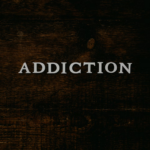Peer pressure is a common challenge faced by adolescents and young adults, particularly concerning substance use and addictive behaviors. In this article, we’ll explore the dynamics of addiction and peer pressure, highlighting the importance of building resilience and assertiveness skills to navigate these influences in a friendly and informative tone.
Understanding Peer Pressure and Addiction
Peer pressure refers to the influence exerted by peers, friends, or social groups on an individual’s attitudes, behaviors, and decision-making. In the context of addiction, peer pressure can significantly impact substance use behaviors, leading to experimentation, misuse, and dependency. Alcohol & Drug Rehabs: Detox & Addiction Treatment Centers Near Me In California are integral in addressing the challenges posed by peer pressure and addiction among adolescents and young adults.
California, with its diverse population and vibrant social scenes, is particularly susceptible to peer pressure influences related to substance use. The presence of peer pressure can contribute to the initiation and escalation of addictive behaviors, including alcohol and drug use, gambling, and risky behaviors.
Building Resilience
Resilience is the ability to adapt, cope with challenges, and bounce back from setbacks. Developing resilience skills is crucial in empowering adolescents and young adults to resist negative peer influences and make healthy choices. Strategies for building resilience include:
- Self-awareness: Encouraging self-reflection, awareness of personal values, and understanding of one’s strengths and vulnerabilities.
- Coping Skills: Teaching effective coping mechanisms such as stress management, problem-solving, and emotional regulation.
- Social Support: Fostering positive relationships with supportive peers, family members, mentors, and role models who encourage healthy behaviors and decision-making.
- Goal Setting: Setting realistic goals, cultivating a sense of purpose, and maintaining motivation towards positive outcomes.
Assertiveness Skills

Assertiveness involves expressing one’s thoughts, feelings, and boundaries in a clear, confident, and respectful manner. Developing assertiveness skills empowers individuals to resist peer pressure, assert their values, and make informed decisions. Key components of assertiveness training include:
- Communication Skills: Practicing effective communication techniques, active listening, and expressing thoughts and feelings assertively yet respectfully.
- Setting Boundaries: Learning to set and enforce personal boundaries, saying “no” when necessary, and advocating for oneself in social situations.
- Decision-Making: Enhancing decision-making skills through critical thinking, weighing pros and cons, considering long-term consequences, and prioritizing personal values and goals.
- Role-Playing: Engaging in role-playing exercises to practice assertive responses to peer pressure scenarios, gaining confidence in assertive communication.
Empowering Adolescents and Young Adults
Empowering adolescents and young adults to resist peer pressure and make healthy choices requires a collaborative effort involving parents, educators, mentors, and community resources. Comprehensive approaches to addressing peer pressure and addiction include:
- Education and Awareness: Providing education on the risks of substance use, addiction, and the influence of peer pressure, promoting informed decision-making.
- Skill-Building Programs: Implementing resilience-building and assertiveness training programs in schools, youth organizations, and community settings.
- Supportive Environments: Creating environments that foster positive peer interactions, inclusivity, acceptance, and healthy social norms.
- Access to Resources: Ensuring access to counseling, support groups, mental health services, and addiction prevention programs for adolescents and young adults.
Navigating peer pressure and addiction requires resilience, self-awareness, assertiveness, and a supportive environment. By equipping adolescents and young adults with these essential skills and resources, we can empower them to make positive choices, resist negative influences, and build fulfilling lives free from the harmful impacts of peer pressure and addiction.


 One of the great things about SUP is that it helps improve your balance. This is because you constantly stand on the board and paddle, which requires a lot of core strength and stability.
One of the great things about SUP is that it helps improve your balance. This is because you constantly stand on the board and paddle, which requires a lot of core strength and stability. Another great benefit of SUP is that it exercises the whole body. This is because you use your arms, legs, back, and core muscles when you paddle. In addition, constant movement helps to improve cardiovascular fitness. So, stand-up paddle boarding is an excellent option if you want a workout to get your whole body moving.
Another great benefit of SUP is that it exercises the whole body. This is because you use your arms, legs, back, and core muscles when you paddle. In addition, constant movement helps to improve cardiovascular fitness. So, stand-up paddle boarding is an excellent option if you want a workout to get your whole body moving.
 One of the best ways to treat erectile dysfunction is consulting your doctor. After the tissue of the penis relaxes due to a certain signal from the head, an erection is achieved. It all starts with sexual stimulation, releasing nitric oxide from the nerves, allowing for rapid blood circulation and muscle relaxation. Blood congestion is what allows virility to become vertical. However, the process can be reversed, and the muscles can contract and decrease the erection due to compound phosphodiesterase.
One of the best ways to treat erectile dysfunction is consulting your doctor. After the tissue of the penis relaxes due to a certain signal from the head, an erection is achieved. It all starts with sexual stimulation, releasing nitric oxide from the nerves, allowing for rapid blood circulation and muscle relaxation. Blood congestion is what allows virility to become vertical. However, the process can be reversed, and the muscles can contract and decrease the erection due to compound phosphodiesterase. It is important to recognize how an erection works, as it allows you to find a solution to your dysfunction. These would be the most common causes, and almost 70 percent of men who have erectile dysfunction admit to having one of these disorders or a mixture of them. Another difficulty may also be testosterone deficiency, suggesting that it is important to understand the cause of erectile dysfunction to find the ideal approach to treat it. In terms of remedies, it is often suggested to start a less invasive remedy to help erectile dysfunction.
It is important to recognize how an erection works, as it allows you to find a solution to your dysfunction. These would be the most common causes, and almost 70 percent of men who have erectile dysfunction admit to having one of these disorders or a mixture of them. Another difficulty may also be testosterone deficiency, suggesting that it is important to understand the cause of erectile dysfunction to find the ideal approach to treat it. In terms of remedies, it is often suggested to start a less invasive remedy to help erectile dysfunction.
 Although truffles are costly, besides the fact that it is quite exciting to eat a delicacy, there are other reasons to eat them. There has been an increase in people interested in magic mushrooms and who have
Although truffles are costly, besides the fact that it is quite exciting to eat a delicacy, there are other reasons to eat them. There has been an increase in people interested in magic mushrooms and who have 



 Pre-pregnancy exercise can help your body cope with the adjustments you experience during pregnancy and childbirth. Almost all women who exercise can safely maintain their current exercise regimen during most of their pregnancy. And most women not currently exercising can start on an
Pre-pregnancy exercise can help your body cope with the adjustments you experience during pregnancy and childbirth. Almost all women who exercise can safely maintain their current exercise regimen during most of their pregnancy. And most women not currently exercising can start on an 

 Autologous plasma eye drops might be signaled if the above treatments don’t control the eye symptoms. An ophthalmologist will evaluate the individual’s suitability for all these eye drops before indicating them. Autologous plasma drops are produced from the individual’s blood. The individual will attend a scheduled appointment and be evaluated by a nurse to be certain they’re healthy enough to provide blood. When the blood is removed in the individual, it’s subsequently made into the eye drops.
Autologous plasma eye drops might be signaled if the above treatments don’t control the eye symptoms. An ophthalmologist will evaluate the individual’s suitability for all these eye drops before indicating them. Autologous plasma drops are produced from the individual’s blood. The individual will attend a scheduled appointment and be evaluated by a nurse to be certain they’re healthy enough to provide blood. When the blood is removed in the individual, it’s subsequently made into the eye drops.
 You’ve awakened time and that’s very good, but you need to ease into opening up your physique. Give yourself a few moments to
You’ve awakened time and that’s very good, but you need to ease into opening up your physique. Give yourself a few moments to  Now your system is awake. It is time to wake your mind up too. Take 5 minutes. You can use a meditation program to make things simpler, or you can just put on some comfort music and dip in. Experts say the automatic bad idea we sometimes experience is the worst thing we could do to help our mind and self-confidence. You should not let those ideas linger in mind for quite a while, but you ought to find out how to remove them and change them into positive images instead. You have to rethink your thoughts and knowledge about the negative ones. Just then, you’re going to have the ability to rephrase them to positive ones. Timely affirmations we could do for ourselves may lead to enhanced education, health, relationships and these gains tend to be permanent.
Now your system is awake. It is time to wake your mind up too. Take 5 minutes. You can use a meditation program to make things simpler, or you can just put on some comfort music and dip in. Experts say the automatic bad idea we sometimes experience is the worst thing we could do to help our mind and self-confidence. You should not let those ideas linger in mind for quite a while, but you ought to find out how to remove them and change them into positive images instead. You have to rethink your thoughts and knowledge about the negative ones. Just then, you’re going to have the ability to rephrase them to positive ones. Timely affirmations we could do for ourselves may lead to enhanced education, health, relationships and these gains tend to be permanent.

 Due to the high stakes involved in neurosurgery, not everyone can become a neurosurgeon. Entry into the specialty may be different in various countries. For example, in the UK, the Neurosurgical National Selection Board conducts the selection process, while in the United States, medical students apply for a residency program in neurosurgery through the National Residency Matching Program. The selection process usually includes interviews, problem-solving, image interpretation, clinical scenario management, communication, and practical skills assessment.
Due to the high stakes involved in neurosurgery, not everyone can become a neurosurgeon. Entry into the specialty may be different in various countries. For example, in the UK, the Neurosurgical National Selection Board conducts the selection process, while in the United States, medical students apply for a residency program in neurosurgery through the National Residency Matching Program. The selection process usually includes interviews, problem-solving, image interpretation, clinical scenario management, communication, and practical skills assessment.